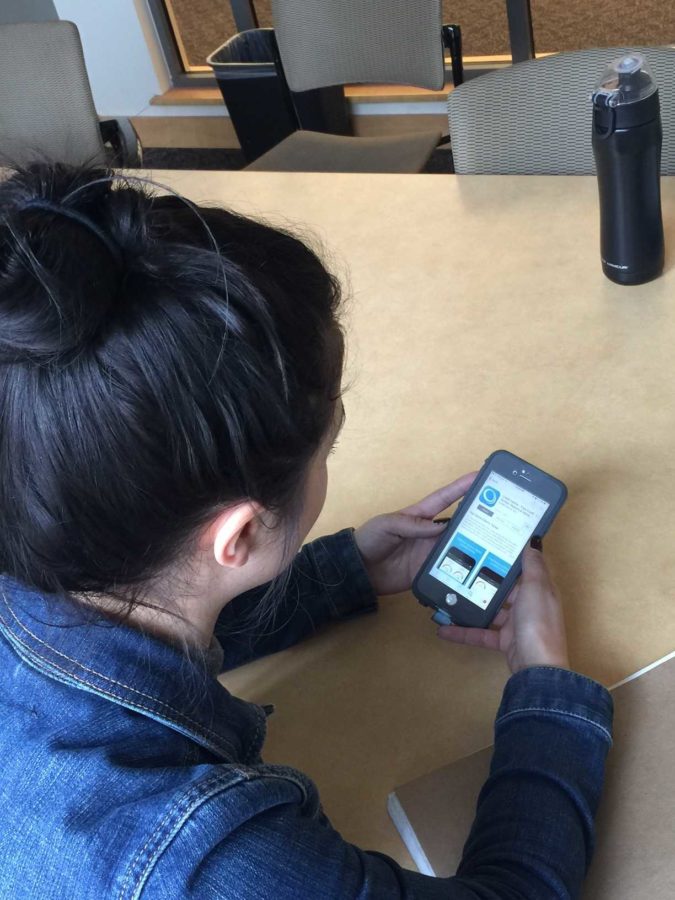Working hard to save money for a home while supporting her husband and two children, Santa Rosa Junior College student Stephanie Elrod, 27, saw a possibility of climbing her way out of debt. Then, like a ton of bricks, a financial crisis struck and set her so far back; she had more debt than before.
Elrod feels distraught about her current financial situation. “My husband is out of work for most of the year,” she said.
Elrod comes from an upbringing where debt was rarely talked about, and when it was, it was never in a positive light. She’s finding negativity around money is unfortunately a part of her life, and debt is a necessary evil.
Elrod is the breadwinner of her family and must support them through any given situation. She hasn’t been lucky when it comes to debt and her overall financial situation. She cautions others to hold off on debt as long as possible and to only use credit cards for emergencies and not frivolous spending.
“It is going to be in your life forever. Learn about it now and learn about how to deal with it,” Elrod said.
Elrod roughly knows where her credit score is at the moment. Despite all her debt and not enough money to go around, she always pays her bills on time and now has a decent credit score. Young adults today work harder than ever to support themselves while attending college and being active and successful members of society. Unfortunately for a lot of students at SRJC, it could mean financial debt, which can be a hard hole to climb out of and can immensely affect students’ futures. Debt does not only connect to owing money, but it also ties into a credit score. A credit score is a number assigned by the credit bureaus, which shows a consumer’s likelihood to pay back debt. Lenders use these scores to determine risk of lending people money. So how does this affect students? Some may have a goal to purchase a house, a car or obtain a student loan.
Ari Demery an SRJC alumnus, racked up her credit cards on things like festival tickets, plane tickets, hotel rooms and dinners. She said half of her debt is accumulated in wine and by paying her ex boyfriends DUI payments.
“I definitely have been known to overdo things when it comes to experiences. I have gotten into debt because I’ve had the mindset that ‘the experience’ is more beneficial than the pain and agony of paying the debt itself,” she said.
Demery got her first credit card when she was 18 with the intensions of using it for emergencies only. Her definition of ‘emergencies’ became a loose term, almost a joke. “Another round bartender, it’s an emergency,” she joked.
Although Demery is open about her current financial situation, she feels embarrassed about having to rely on her parents for financial assistance. She is working on changing her ways and now questions if she really needs that glass of wine before ordering it. She has also been writing down expenses and to know where she’s at financially at all times.
“It’s easy to swipe your card and forget about it. You have to really take charge and know what you’re working with,” she said.
Demery is happy she has a supportive family who doesn’t make her feel bad about her financial situation. She feels like she is growing up and taking charge of budgeting her life. She’s not exactly sure what her current credit scores are, but she knows with help from her parents, the score has improved tremendously.
The subject of how to spend money correctly is something that needs to be brought to a new level of importance. For students who have cell phones, there is an application called ‘Credit Karma.’ It’s a great tool for managing students’ credit and debt in a financially savvy way. Students can download it to have free access to their current credit scores, with tips on how to bring their credit scores up specifically catered to each user.
SRJC student Lizzy Tatrai has no credit cards, no financial debt and is unaware of what her credit score currently is. She heard about Credit Karma from friends and TV commercials. Tatrai admits she has no idea how it all works.
“If I understood how to use the app and why it was important, I would use it,” she said.
People told her having credit is important, and she knows if she understood more about how credit works, she would be motivated to have the best score possible.
Chief consumer advocate Bethy Hardeman at Credit Karma said credit history starts now. Hardeman came from a financially savvy family and has followed in her parent’s footsteps with credit scores both over 800, which is high in the spectrum of credit scores.
“Credit plays a role in people’s lives no matter who you are or what your job is. You should achieve a great credit score,” Hardeman said.
According to Hardeman, a credit score determines whether or not people will be approved for a credit card loan or a place to live. She said cell phone companies are now looking at these numbers. She wants people to refrain from avoiding credit and to understand exactly what it is.
Having a grasp on the overall financial outlook and good credit score is a goal all students should have. The truth is students are usually not educated about building a good reputation in the credit world. With technology like Credit Karma, students can take a step in the right direction and be ready for whatever their future brings financially.


